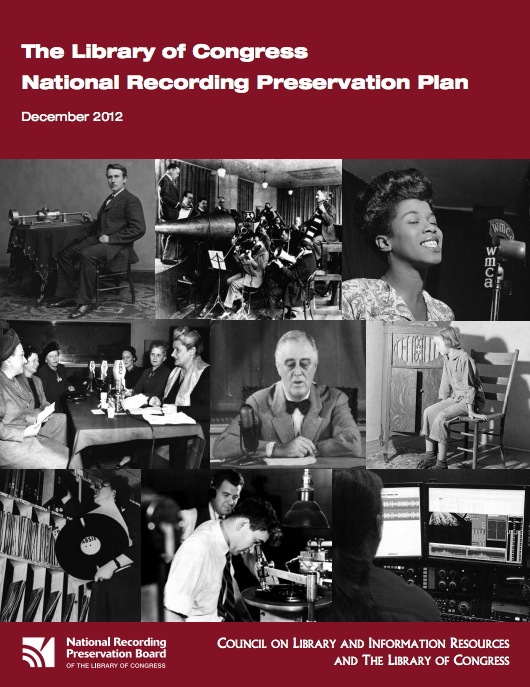 The National Recording Preservation Foundation (NRPF) is an independent, charitable, and nonprofit corporation with the mission to promote and ensure the preservation and public accessibility of the nation’s sound recording heritage. The Foundation was federally chartered under the National Recording Preservation Act of 2000.1
The National Recording Preservation Foundation (NRPF) is an independent, charitable, and nonprofit corporation with the mission to promote and ensure the preservation and public accessibility of the nation’s sound recording heritage. The Foundation was federally chartered under the National Recording Preservation Act of 2000.1
The Foundation, guided by this charter, pursues its mission by encouraging, coordinating, and administering resources that foster the preservation and public accessibility of the nation’s sound recording collections. The NRPF emphasizes support for collections held by public archives, libraries, cultural institutions and other nonprofit collecting organizations with the commitment to preserve radio broadcasts, music, and other types of recorded sound. Where appropriate, the Foundation may assist privately-held and commercial collections, when those holding them cannot do so with their own resources and the collections are threatened through the ravages of time or random acts of nature. In all cases, the Foundation aims to foster increased awareness and knowledge about recorded sound collections, whether through digital preservation, the creation of databases and public information, or digital platforms that draw attention to these vast, but often hidden or forgotten, treasures.
“Congress understood the need to preserve and protect our Nation’s sound recordings when they created the National Recording Preservation Foundation. It is a crucial task at hand, working to identify collections of recordings that are at risk, that are in need of archival resources, that are in need of a home.”
—John Simson, Former Chair of the NRPF
As a public/private partnership, the Foundation works closely with the Library of Congress and its experts and is dedicated to advancing the priorities and procedures of the National Recording Preservation Plan. The Plan articulated a comprehensive, national agenda to ensure the survival, conservation, and increased public availability of America’s sound recording heritage. Additional related activities initiated under the National Recording Preservation Act are the National Recording Registry and the National Recording Preservation Board. The Board advises on the selection criteria for the Recording Registry and also reviews and recommends nominations for the Registry.
Independence and Collaboration
The Foundation maintains an independence that lends it flexibility in fund raising and the setting of priorities and practices. These are largely determined according to the broadest concerns of the preservation community at large and the guidelines of the Foundation’s advisors and its Board of Directors. It is therefore uniquely positioned to raise the necessary funds, marshal the expertise of skilled professionals, and reach out to the recorded sound community, collectors and archives to build support for preserving our nation’s audio treasures.
Notes
-
The National Recording Preservation Act of 2000 is the short title of United States Public Law 106–474, enacted by the 106th United States Congress. The Act was subsequently reauthorized, once in 2008 through Public Law 110-336, and again in 2016 through Public Law 114-217. ↩




